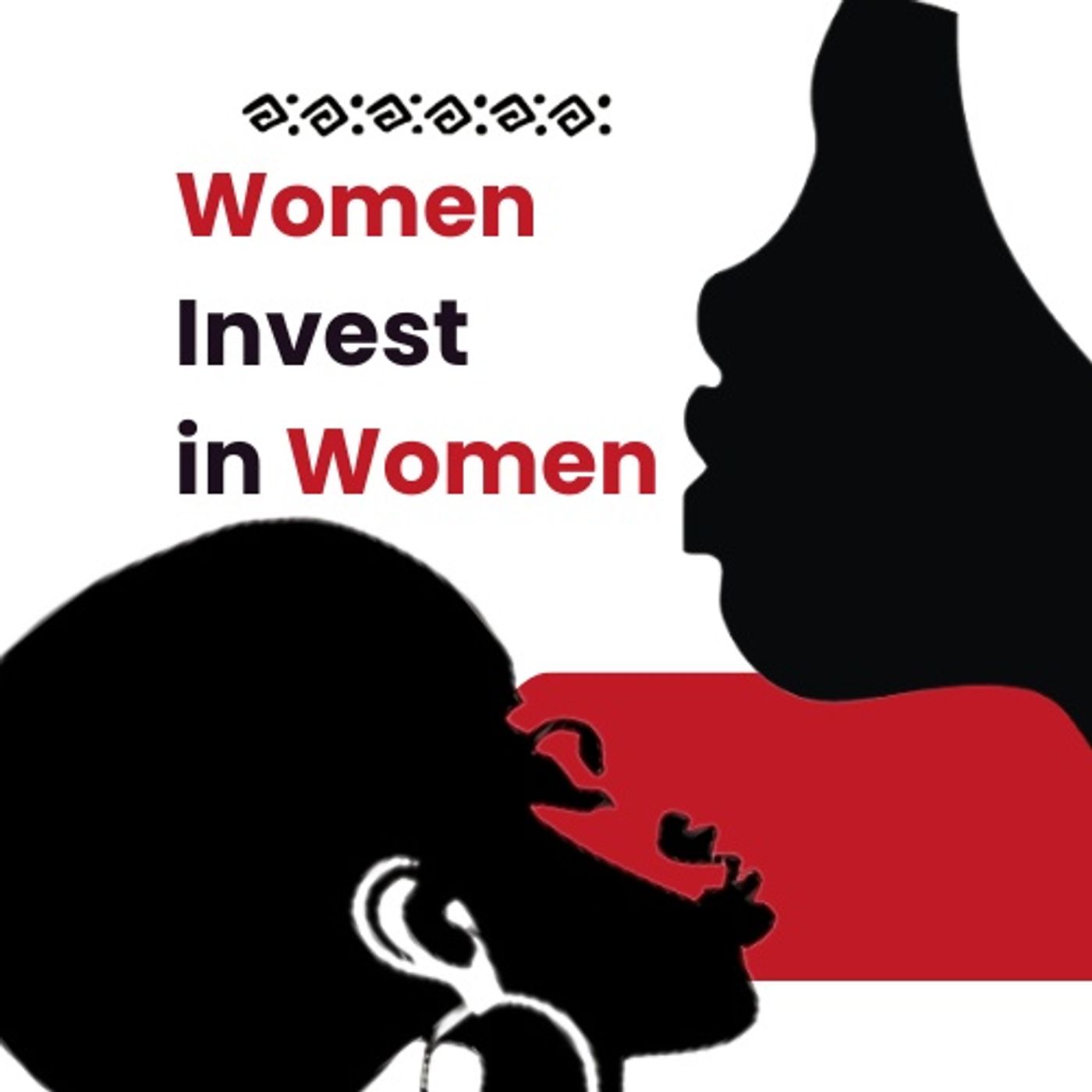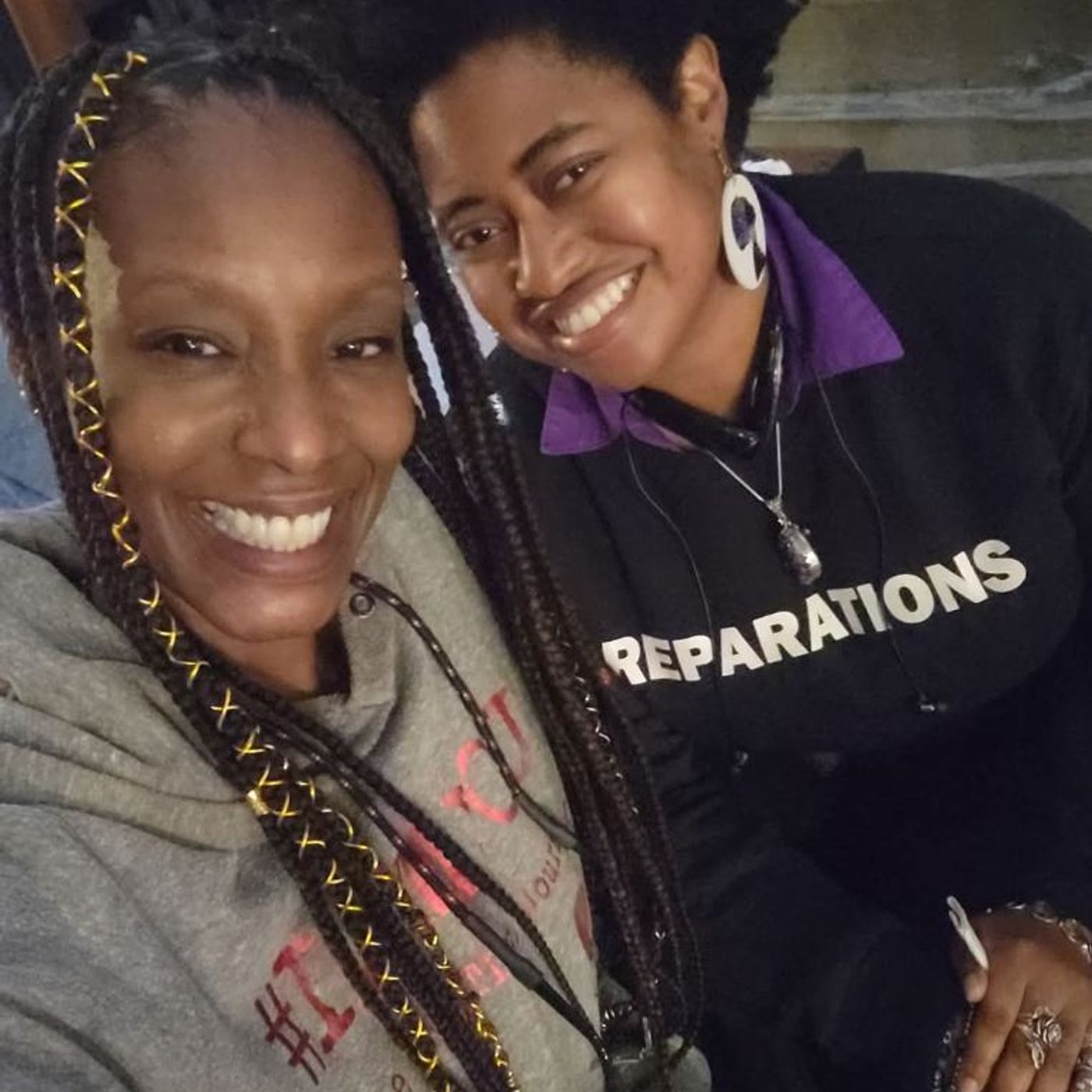How Women Are Shaping AI: Tackling Bias, Empowering Change
Update: 2025-07-30
Description
The hosts, Kwamara and Shay dive deep into the critical role women play in the AI field, highlighting the groundbreaking contributions of Dr. Fei-Fei Li, often called the "godmother of AI." Dr. Li’s pioneering work in visual data sets, particularly ImageNet, revolutionized AI’s ability to recognize images, enabling technologies like facial recognition, self-driving cars, and advanced healthcare diagnostics.
The conversation emphasizes the importance of diversity — not only gender but also race, ethnicity, socioeconomic background, sexual orientation, geographic origin, and differently-abled perspectives — in building more ethical, fair, and human-centered AI systems. It is argued that AI reflects the values and biases of its creators, so inclusive teams are essential to mitigate bias and promote fairness.
The episode also explores the economic and innovation benefits of gender-diverse AI teams, citing statistics that female participation leads to higher innovation output, better ethical outcomes, and improved product adoption. The hosts discuss the challenges of bias in healthcare AI, where most research has historically been male-centric, leading to harmful disparities in diagnosis and treatment for women.
Voice assistants and their predominantly female voices are examined through a nuanced lens, questioning stereotypes and exploring why female voices might be chosen for certain roles due to perceived trust and warmth.
The hosts underscore the human-centered AI philosophy championed by Dr. Fei-Fei Li, which advocates for AI designed with human values—fairness, accountability, transparency, and trust—at its core. They reflect on the potential for AI to enhance human connection rather than diminish it, freeing time for more meaningful interactions.
The episode closes by highlighting the need for ongoing conversations, representation, and actionable frameworks to empower women and diverse voices in AI. The hosts hint at a forthcoming part three focused on women and healthcare disparities, emphasizing the urgent need to address long-standing inequities in medical treatment and technology.
This episode underscores the urgency and opportunity of integrating women and diverse voices into AI and tech development. By doing so, AI can become a truly human-centered tool that advances innovation, equity, and global economic growth while honoring the rich complexity of human experience.
Highlights
👩💻 Dr. Fei-Fei Li, the "godmother of AI," revolutionized visual recognition AI with ImageNet, enabling technologies like facial recognition and self-driving cars.
🌍 Diversity in AI development—across gender, ethnicity, culture, and ability—is essential to reduce bias and create ethical, inclusive technologies.
💡 Gender-diverse AI teams produce 35% more innovation and 28% more patents, especially in ethical AI and user-centric design.
❤️ AI bias in healthcare disproportionately harms women due to male-centric research and diagnosis models.
🎙️ Female voices dominate voice assistants, raising questions about stereotypes, trust, and emotional nuance in AI interaction.
🤝 Human-centered AI prioritizes fairness, transparency, accountability, and trust, reflecting human values in technology design.
💰 Closing the gender gap in AI could add $13 trillion to the global GDP by 2030, showcasing the economic power of diversity.
Key Insights
The Pivotal Role of Dr. Fei-Fei Li
Dr. Li’s creation of ImageNet with 14 million labeled images was a turning point in AI, allowing machines to identify and categorize images accurately. This foundational work enabled the proliferation of numerous AI applications in daily life and industry, illustrating how one woman’s innovation can ripple across multiple sectors. Her immigrant and minority background also highlights the importance of diverse representation in tech innovation, challenging the male-dominated narrative.
Diversity Extends Beyond Gender
The discussion broadens the concept of diversity to include cultural, socioeconomic, geographic, and neurological differences, recognizing that AI must be trained on data reflecting the full spectrum of human experience. This helps avoid misinterpretations and biases—for example, how cultural norms affect communication styles or how rural versus urban experiences shape user needs. Such nuanced understanding is crucial for creating AI that serves global populations fairly.
Innovation and Economic Impact of Gender-Diverse Teams
Statistically, gender-diverse teams are more innovative and produce more patents, particularly in ethical AI and user-centric design. This suggests that inclusion directly enhances creative problem-solving and leads to better solutions. Economically, closing the gender gap in AI development could contribute $13 trillion to global GDP by 2030, framing diversity not just as a moral imperative but a strategic economic advantage for businesses and nations.
Healthcare AI’s Gender Bias and Its Consequences
AI tools trained predominantly on male data sets often fail to accurately diagnose or treat women, leading to disparities in care such as late ADHD diagnosis in women or misrecognition of heart attack symptoms. This underlines the critical need for diversity in AI development teams and data to ensure healthcare technologies are equitable and effective for all genders. The conversation also touches on how hormonal differences have been used as an excuse to exclude women from clinical trials—an outdated rationale that perpetuates harmful gaps in medical knowledge.
Nuances in Voice Assistants and Gender Stereotypes
The prevalence of female voices in AI assistants is often critiqued as reinforcing stereotypes of women in subservient roles. However, the episode explores the complexity behind this choice, including the perception of female voices as more emotionally nuanced and trustworthy. It also highlights a lack of diversity within the “female” voice archetype used, raising questions about whose voices are represented and whose are excluded. This points to the broader need for inclusivity in AI user experience design.
Human-Centered AI as a Path Forward
Dr. Fei-Fei Li’s philosophy that AI’s values must be human values reinforces the idea that AI should be designed to enhance human life, reduce bias, and promote fairness, transparency, and trust. The episode suggests that rather than technology diminishing human connection, AI can free people from mundane tasks, allowing more time for authentic, meaningful interactions. This vision emphasizes empathy, kindness, and shared humanity as core guiding principles in AI development.
The Power of Diverse Teams in Implementation and Adoption
Beyond invention, diverse teams improve user satisfaction and accelerate adoption of AI products by better understanding and addressing the needs of varied user groups. Women, in particular, are noted for relational skills that foster trust and open communication, leading to honest feedback and more effective product iteration. This insight stresses that diversity is essential not just in technical creation but throughout the entire AI lifecycle—from design to market implementation.
Become a supporter of this podcast: https://www.spreaker.com/podcast/women-invest-in-women--6695973/support.
The conversation emphasizes the importance of diversity — not only gender but also race, ethnicity, socioeconomic background, sexual orientation, geographic origin, and differently-abled perspectives — in building more ethical, fair, and human-centered AI systems. It is argued that AI reflects the values and biases of its creators, so inclusive teams are essential to mitigate bias and promote fairness.
The episode also explores the economic and innovation benefits of gender-diverse AI teams, citing statistics that female participation leads to higher innovation output, better ethical outcomes, and improved product adoption. The hosts discuss the challenges of bias in healthcare AI, where most research has historically been male-centric, leading to harmful disparities in diagnosis and treatment for women.
Voice assistants and their predominantly female voices are examined through a nuanced lens, questioning stereotypes and exploring why female voices might be chosen for certain roles due to perceived trust and warmth.
The hosts underscore the human-centered AI philosophy championed by Dr. Fei-Fei Li, which advocates for AI designed with human values—fairness, accountability, transparency, and trust—at its core. They reflect on the potential for AI to enhance human connection rather than diminish it, freeing time for more meaningful interactions.
The episode closes by highlighting the need for ongoing conversations, representation, and actionable frameworks to empower women and diverse voices in AI. The hosts hint at a forthcoming part three focused on women and healthcare disparities, emphasizing the urgent need to address long-standing inequities in medical treatment and technology.
This episode underscores the urgency and opportunity of integrating women and diverse voices into AI and tech development. By doing so, AI can become a truly human-centered tool that advances innovation, equity, and global economic growth while honoring the rich complexity of human experience.
Highlights
👩💻 Dr. Fei-Fei Li, the "godmother of AI," revolutionized visual recognition AI with ImageNet, enabling technologies like facial recognition and self-driving cars.
🌍 Diversity in AI development—across gender, ethnicity, culture, and ability—is essential to reduce bias and create ethical, inclusive technologies.
💡 Gender-diverse AI teams produce 35% more innovation and 28% more patents, especially in ethical AI and user-centric design.
❤️ AI bias in healthcare disproportionately harms women due to male-centric research and diagnosis models.
🎙️ Female voices dominate voice assistants, raising questions about stereotypes, trust, and emotional nuance in AI interaction.
🤝 Human-centered AI prioritizes fairness, transparency, accountability, and trust, reflecting human values in technology design.
💰 Closing the gender gap in AI could add $13 trillion to the global GDP by 2030, showcasing the economic power of diversity.
Key Insights
The Pivotal Role of Dr. Fei-Fei Li
Dr. Li’s creation of ImageNet with 14 million labeled images was a turning point in AI, allowing machines to identify and categorize images accurately. This foundational work enabled the proliferation of numerous AI applications in daily life and industry, illustrating how one woman’s innovation can ripple across multiple sectors. Her immigrant and minority background also highlights the importance of diverse representation in tech innovation, challenging the male-dominated narrative.
Diversity Extends Beyond Gender
The discussion broadens the concept of diversity to include cultural, socioeconomic, geographic, and neurological differences, recognizing that AI must be trained on data reflecting the full spectrum of human experience. This helps avoid misinterpretations and biases—for example, how cultural norms affect communication styles or how rural versus urban experiences shape user needs. Such nuanced understanding is crucial for creating AI that serves global populations fairly.
Innovation and Economic Impact of Gender-Diverse Teams
Statistically, gender-diverse teams are more innovative and produce more patents, particularly in ethical AI and user-centric design. This suggests that inclusion directly enhances creative problem-solving and leads to better solutions. Economically, closing the gender gap in AI development could contribute $13 trillion to global GDP by 2030, framing diversity not just as a moral imperative but a strategic economic advantage for businesses and nations.
Healthcare AI’s Gender Bias and Its Consequences
AI tools trained predominantly on male data sets often fail to accurately diagnose or treat women, leading to disparities in care such as late ADHD diagnosis in women or misrecognition of heart attack symptoms. This underlines the critical need for diversity in AI development teams and data to ensure healthcare technologies are equitable and effective for all genders. The conversation also touches on how hormonal differences have been used as an excuse to exclude women from clinical trials—an outdated rationale that perpetuates harmful gaps in medical knowledge.
Nuances in Voice Assistants and Gender Stereotypes
The prevalence of female voices in AI assistants is often critiqued as reinforcing stereotypes of women in subservient roles. However, the episode explores the complexity behind this choice, including the perception of female voices as more emotionally nuanced and trustworthy. It also highlights a lack of diversity within the “female” voice archetype used, raising questions about whose voices are represented and whose are excluded. This points to the broader need for inclusivity in AI user experience design.
Human-Centered AI as a Path Forward
Dr. Fei-Fei Li’s philosophy that AI’s values must be human values reinforces the idea that AI should be designed to enhance human life, reduce bias, and promote fairness, transparency, and trust. The episode suggests that rather than technology diminishing human connection, AI can free people from mundane tasks, allowing more time for authentic, meaningful interactions. This vision emphasizes empathy, kindness, and shared humanity as core guiding principles in AI development.
The Power of Diverse Teams in Implementation and Adoption
Beyond invention, diverse teams improve user satisfaction and accelerate adoption of AI products by better understanding and addressing the needs of varied user groups. Women, in particular, are noted for relational skills that foster trust and open communication, leading to honest feedback and more effective product iteration. This insight stresses that diversity is essential not just in technical creation but throughout the entire AI lifecycle—from design to market implementation.
Become a supporter of this podcast: https://www.spreaker.com/podcast/women-invest-in-women--6695973/support.
Comments
In Channel







